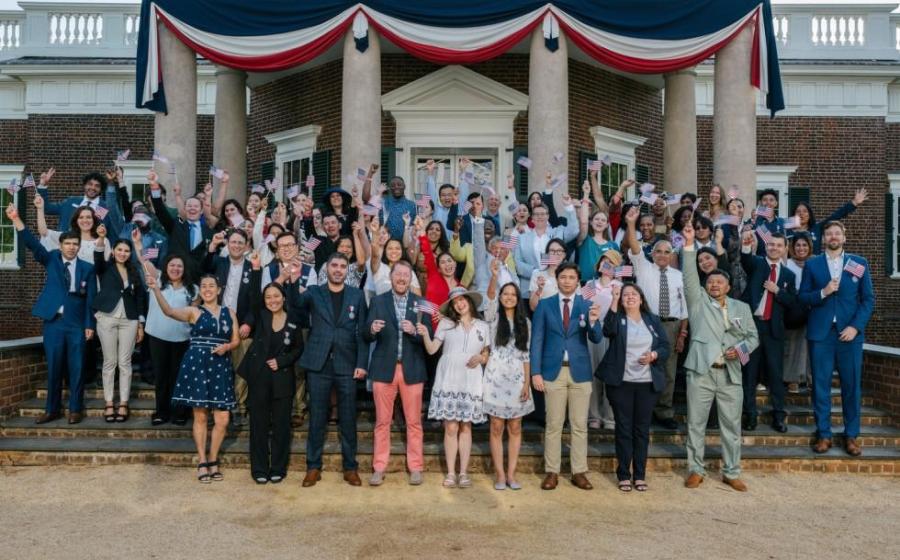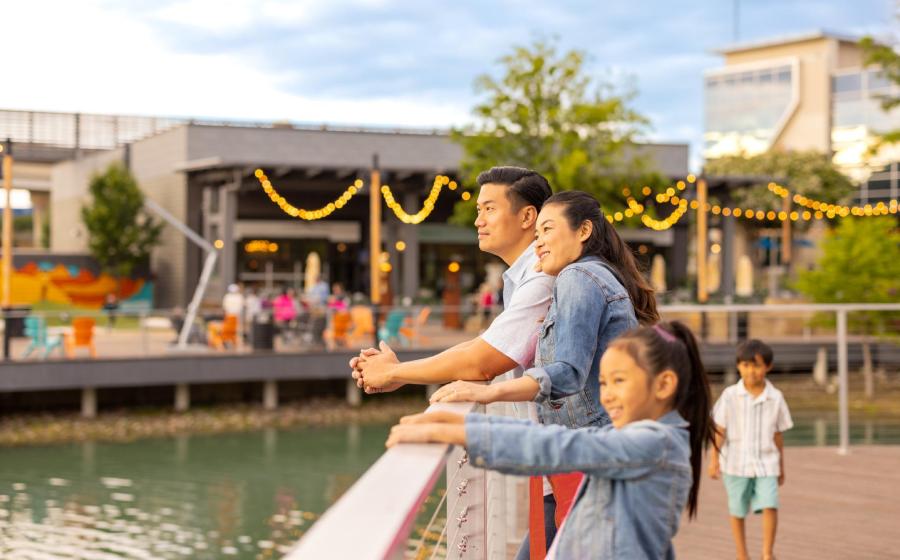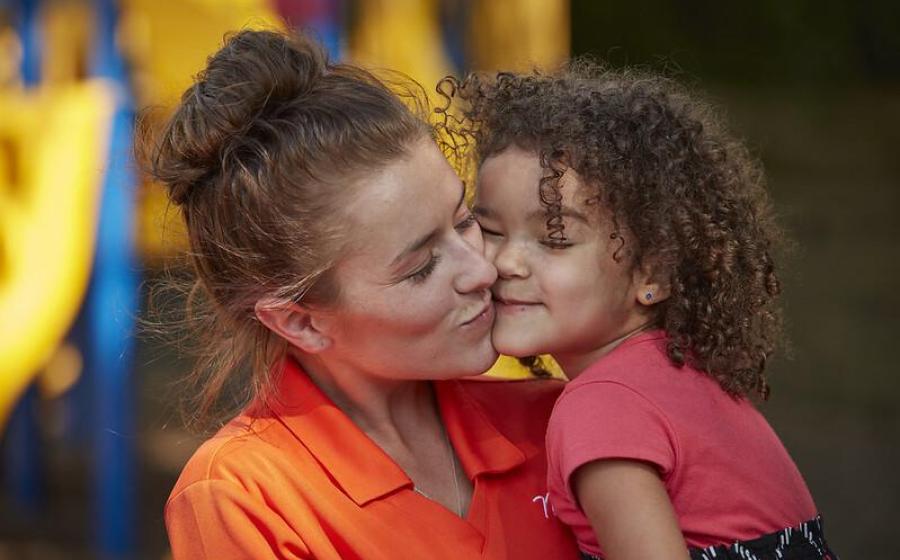(NewsUSA) - Ready to turn up the fun and make unforgettable memories this summer? Plano, Texas is your go-to destination for summer adventures with family and friends. Whether you’re planning epic outings with the kids or lively nights out with your crew, Plano serves up the perfect blend of excitement and charm. Dive into our top must-do activities this summer and discover why this North Texas hotspot should be at the top of your vacation list.
- Ready to turn up the fun and make unforgettable memories this summer? Plano, Texas is your go-to destination for summer adventures with family and friends. Whether you’re planning epic outings with the kids or lively nights out with your crew, Plano serves up the perfect blend of excitement and charm. Dive into our top must-do activities this summer and discover why this North Texas hotspot should be at the top of your vacation list.
Make a Splash
The Renaissance Dallas at Plano Legacy West’s third floor oasis includes a rooftop swimming pool + spa, with large, resort-style umbrellas along the perimeter. Complete with a bar and grill, it’s easy to lose track of time. Looking for more fun? Secure your space with a cabana rental. Available for reservations through Resort Pass or directly at the hotel, these cabanas allow you to stay shady all summer.
Swim across Texas at the historic Texas Pool, a 168,000 gallon saltwater pool shaped like the great State of Texas. It’s also a National Landmark listed in the National Register of Historic Places! The pool is open Memorial Day to Labor Day and features a diving board, two water slides, and an island with a shallow “South Texas” wading area for small children and parents. Cook out on their BBQ grills or enjoy the snack bar. There are also picnic tables and a beach volleyball court. Visitor passes are available.
Stay cool this summer by visiting one of Plano’s indoor and outdoor pool locations: Carpenter Park Recreation Center (indoor), Jack Carter Pool (outdoor), Liberty Recreation Center (outdoor), Oak Point Recreation Center (indoor and outdoor), and Plano Aquatic Center (indoor pool and outdoor splash pad). Admission to the pools is included in Plano Recreation Center memberships. Non-members and guests can pay a minimal daily admission fee at each pool. Check individual rec center pages for hours of operation.
Hit the splash pad at Liberty Playground at Windhaven Meadows Park, Jack Carter Pool, and Plano Aquatic Center.
Catch Live Music
When it comes to finding live music in Plano, Legacy Hall knows how put on a show! All summer long they are throwing out all the tunes of all genres. From Taylor Swift to Queen, Legacy Hall has all the best tribute concerts covered this summer. Check out all their upcoming shows and events on their calendar.
Another music hotspot is McCall Plaza in the Downtown Plano Arts District. Enjoy free live music all summer long. Don’t miss out on all the fun in downtown Plano; check upcoming events on our event calendar listing.
The Plano Community Band is also bringing back their Mondays in the Park concert series at Haggard Park in the Downtown Plano Arts District on June 16, July 3 and July 14.
Celebrate July Fourth
Celebrate Independence Day in Plano with several patriotic events throughout the day. On July 4, swim across Texas at The Texas Pool and enjoy food, traditional pool games and legendary fun in the sun. Admission is $10 per person; veterans and active-duty military get in FREE with an ID.
Then, come out to Oak Point Park for Plano’s free All American 4th celebration. The event opens at 6pm with the Rotary Clubs of Plano parade and fireworks will begin at 9:30pm. Parking will be available at Collin College.
Shop Till You Drop
One thing is for sure when it comes to Plano, there are endless shopping options to experience. Dallas may be known as one of the top shopping destinations in the U.S., but just 20 miles north, you can continue the one-of-a-kind shopping adventure in Plano.
From Legacy West, The Shops at Legacy, The Shops at Willow Bend to the Downtown Plano Arts District and everywhere in between – Plano is brimming with shopping areas. Check out Plano’s shopping adventure here.
Don’t miss the new luxury shopping at Legacy West. The line-up of the best-of luxury retail includes: Gucci, CHANEL Beauty, Tiffany & Co., Tory Burch, Golden Goose, David Yurman, and Louis Vuitton.
Downtown Plano Arts District will celebrate the season at Summer Fest Market in the heart of Downtown Plano on June 22 from 11am-5pm. Enjoy a vibrant day of local shopping, live entertainment, and family fun.
Walk the boardwalk
Day or night, The Boardwalk at Granite Park makes for a special dining experience! Nestled in the middle of the Granite Park corporate business center sits a 30,000 square foot restaurant park called The Boardwalk. With restaurants of all types, a casual family-friendly atmosphere, entertainment, and an amazing waterfront view, The Boardwalk is the perfect place for a patio brunch date with friends, a fun family dinner, or a late night date spot. Grab a beverage from one of the restaurants on The Boardwalk and relax with friends on the waterfront!
Dodge the heat at Crayola Experience
Beat the heat at Plano’s most colorful attraction, the Crayola Experience at The Shops at Willow Bend, an amazing place where families can explore 22 hands-on attractions in a 60,000 square foot space that Parents Magazine calls one of the “Top 10 Trips to Take Before Your Kid Turns 10.”
Fly high at Go Ape
The first treetop adventure course in Texas is just minutes from the Downtown Plano Arts District at Oak Point Park & Nature Preserve. This vast area of natural beauty sits on 800 acres and features more than just a canopy tour. Go Ape includes five individual sections with rope ladders and 39 exciting crossings.
Fowl-On at Fowling Warehouse
Fowling is a unique and entertaining game that merges football with bowling, and in Plano at Fowling Warehouse, older kids and their parents can have a blast playing this new sport. It’s as easy as throwing a football at ten bowling pins until someone knocks them all down.
Have a Laugh
Enjoy a boutique comedy experience in Plano’s Legacy neighborhood. With a playful nod to Robin Hood, Mic Drop Comedy offers a vibrant, intimate setting where laughter and connection take center stage. Check out their upcoming shows and grab your tickets for an unforgettable night.
Be a Plano Foodie
Visit Plano has a FREE and limited-time foodie pass! Now through September 30, 2025, you can accumulate points just for checking in at participating restaurants and redeeming coupons, then you can cash in your points for “I’m a Plano Foodie” swag. But that’s not all! Be an over-achiever and check in at 20 restaurants to be automatically entered into the “Fit for a Foodie” sweepstakes for a chance to win ultimate foodie experiences. Sign up now and start your delicious journey! Sign up at visitplano.com/tasteofplano.
Check out a food tour too! Lone Star Food Tours provides an immersive journey through Downtown Plano’s food culture, offering visitors and locals alike a chance to taste their way through downtown’s eateries, while also learning about its history and culture.
Find more things to do and unique places to eat in Plano by exploring our website The Most Amazing Places to Visit in the City of Plano and blog.
 - On July 4, 2025, Thomas Jefferson's Monticello hosted its 63rd annual immigration and naturalization ceremony, swearing in 74 new American citizens from 40 countries across five continents. Their stories remind us of the promise of the Declaration of Independence we celebrate in this 249th anniversary year.
- On July 4, 2025, Thomas Jefferson's Monticello hosted its 63rd annual immigration and naturalization ceremony, swearing in 74 new American citizens from 40 countries across five continents. Their stories remind us of the promise of the Declaration of Independence we celebrate in this 249th anniversary year.


 - The path to a sustainable energy future hinges not only on wind, solar, and battery storage systems—but also on the skilled individuals who build, maintain, and operate them. A diverse, well-trained workforce is essential to the future of clean energy. Yet, too often, investments focus exclusively on technology, overlooking the people who make these innovations possible.
- The path to a sustainable energy future hinges not only on wind, solar, and battery storage systems—but also on the skilled individuals who build, maintain, and operate them. A diverse, well-trained workforce is essential to the future of clean energy. Yet, too often, investments focus exclusively on technology, overlooking the people who make these innovations possible.
 - Our nation’s power grid – the network that brings electricity from where it’s generated to where it’s used – is severely outdated. Most of America’s transmission lines are more than 50 years old, and date back to the 1950-60s. The American Society of Civil Engineers has given our power grid a D+ grade. As we use more electronics, build new factories, and continue to grow AI data centers, our electricity demand increases. But our outdated grid cannot keep up.
- Our nation’s power grid – the network that brings electricity from where it’s generated to where it’s used – is severely outdated. Most of America’s transmission lines are more than 50 years old, and date back to the 1950-60s. The American Society of Civil Engineers has given our power grid a D+ grade. As we use more electronics, build new factories, and continue to grow AI data centers, our electricity demand increases. But our outdated grid cannot keep up.
 - Ready to turn up the fun and make unforgettable memories this summer? Plano, Texas is your go-to destination for summer adventures with family and friends. Whether you’re planning epic outings with the kids or lively nights out with your crew, Plano serves up the perfect blend of excitement and charm. Dive into our top must-do activities this summer and discover why this North Texas hotspot should be at the top of your vacation list.
- Ready to turn up the fun and make unforgettable memories this summer? Plano, Texas is your go-to destination for summer adventures with family and friends. Whether you’re planning epic outings with the kids or lively nights out with your crew, Plano serves up the perfect blend of excitement and charm. Dive into our top must-do activities this summer and discover why this North Texas hotspot should be at the top of your vacation list.
 - As America’s need for electricity grows, solar energy is stepping up to meet the moment. Today, utility-scale solar power now generates enough electricity to power 22 million homes. In 2024 alone, a record 33 GW+ of new solar capacity was added to our power grid.
- As America’s need for electricity grows, solar energy is stepping up to meet the moment. Today, utility-scale solar power now generates enough electricity to power 22 million homes. In 2024 alone, a record 33 GW+ of new solar capacity was added to our power grid.
 - America’s electricity demand is on the verge of a generational shift. A recent S&P study projects a 35-50% surge in demand by 2040, driven by growing electricity needs to power new major industry investments, including data centers. As our country’s economy grows, we must focus on solutions, like battery storage, to ensure our power is reliable, affordable, and secure.
- America’s electricity demand is on the verge of a generational shift. A recent S&P study projects a 35-50% surge in demand by 2040, driven by growing electricity needs to power new major industry investments, including data centers. As our country’s economy grows, we must focus on solutions, like battery storage, to ensure our power is reliable, affordable, and secure.
 - Consumers are urged to understand which GLP-1 medications are safe, approved, and legal after May 22
- Consumers are urged to understand which GLP-1 medications are safe, approved, and legal after May 22
 - Parenting is among life’s most rewarding experiences, yet it can also be one of the most mentally and emotionally taxing. From managing child care and household responsibilities to juggling work and family schedules, the pressure can quickly mount—especially when the workload is uneven.
- Parenting is among life’s most rewarding experiences, yet it can also be one of the most mentally and emotionally taxing. From managing child care and household responsibilities to juggling work and family schedules, the pressure can quickly mount—especially when the workload is uneven. - Auto insurance costs have risen significantly over the last few years. This can be attributed to several factors, including higher repair costs associated with new vehicle technology, the potential impact of tariffs, and a growing number of incidents involving distracted driving and speeding. One of the keys to curbing the rising cost pressures is accurate data. This knowledge can assist insurers and employers in developing effective risk management strategies.
- Auto insurance costs have risen significantly over the last few years. This can be attributed to several factors, including higher repair costs associated with new vehicle technology, the potential impact of tariffs, and a growing number of incidents involving distracted driving and speeding. One of the keys to curbing the rising cost pressures is accurate data. This knowledge can assist insurers and employers in developing effective risk management strategies. - Auto insurance costs have risen significantly over the last few years. This can be attributed to several factors, including higher repair costs associated with new vehicle technology, the potential impact of tariffs, and a growing number of incidents involving distracted driving and speeding. One of the keys to curbing the rising cost pressures is accurate data. This knowledge can assist insurers and employers in developing effective risk management strategies.
- Auto insurance costs have risen significantly over the last few years. This can be attributed to several factors, including higher repair costs associated with new vehicle technology, the potential impact of tariffs, and a growing number of incidents involving distracted driving and speeding. One of the keys to curbing the rising cost pressures is accurate data. This knowledge can assist insurers and employers in developing effective risk management strategies.




